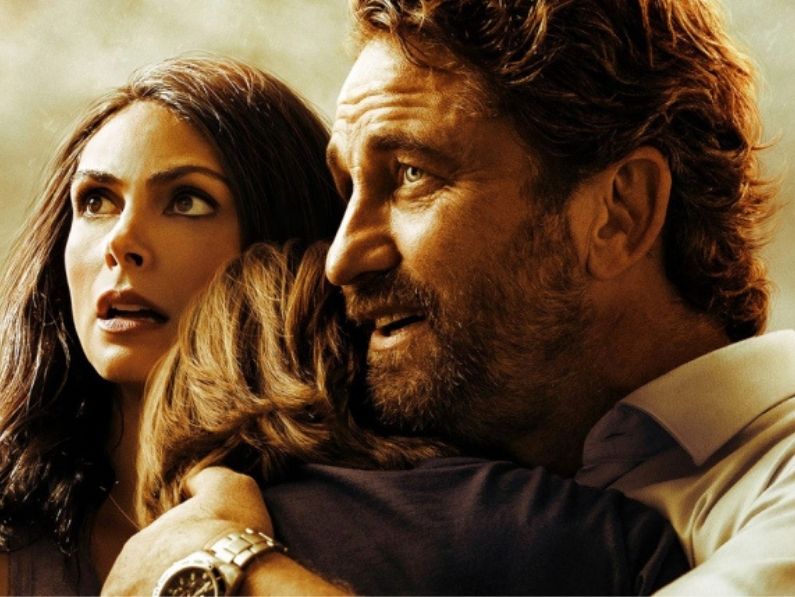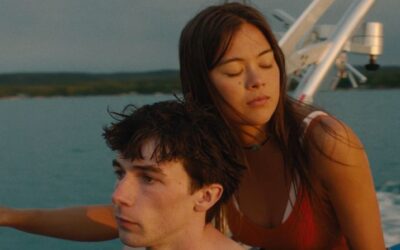It’s been 14 years since Gerard Butler yelled “This is Sparta!” and cemented his status as an action star and all-around leading man hunk. He’s kept very busy since with a mix of rom-coms, heroic everyman thrillers and, you guessed it, extinction-level event spectacles. Butler is always likable in these roles. And he’s much more relatable to the actual everymen who pay to see him than, say, the Rock or Jason Statham. Whether by luck or design, Butler hasn’t stayed in any one B-movie lane long enough to have it named for him (I’m looking at you Liam Neeson). But add a few more end-of-the-world endeavors like “Greenland” to his list and he’ll get close.
Releasing on most streaming services this month, “Greenland” is the story of one family’s struggle to find shelter from a planet-killing comet. The impending fall of humankind and every other kind on planet Earth is not a novel occurrence for moviegoers. I’m not talking about post-apocalyptic movies. That’s a different topic entirely. I’m talking about apocalypse-in-progress movies. From “2012” to “Armageddon” to “Deep Impact” to “The Day After Tomorrow,” we’ve grown accustomed to an almost annual reckoning with forces well beyond our control. How many times have we seen New York City leveled by tidal waves, meteors or monsters? It happens a lot. And we can’t get enough of it. This is what a film like “Greenland” is up against, though, and why it’s hard to tell a tale that makes an impression on our long and rich cultural experience with the subject. The best thing a new disaster property can hope for, it seems, is that being unmemorable is at least a little better than being forgettable. It’s a fine line. And neither side of it is great.
For all its uninspiring ingredients, the recipe of “Greenland” actually comes together well. It’s a solid 2-hour immersion into the chaos that would likely attend the end of days. This portrayal works best when it’s thinking small. Director Ric Roman Waugh didn’t have a huge budget to work with, but his focus on intimate interactions over garish visuals and complex set pieces doesn’t feel like a choice he’s forced to make. It feels like one he wants to make. The biggest, most gut-wrenching moments in “Greenland” happen in confined spaces. It’s not actually the comet that makes the trials of Gerard Butler and his family so compelling, and so frightening. We’ve seen a million of those. It’s the deadly, desperate menace of the people they encounter along the way. There is plenty of large-scale devastation to witness in this movie, but it’s oddly not the point. Human behavior in the face of certain death is what we are watching in “Greenland.” It’s devastation writ small. And it’s a shock.
Two unfortunate things you can count on with this kind of film are cliches and coincidences. And “Greenland” has its share of both. Gerard Butler and Morena Baccarin play a couple who are having trouble. But you just know this crazy nonsense will bring them together again. Scott Glenn is the obligatory plucky grandpa who refuses to budge, come what may. Random other bit players say wise, aspirational things that immediately mark them for death and then die. Phones don’t work unless the plot needs them to. Distances between places are either incredibly far or incredibly short, again based on need. The list goes on, but it doesn’t matter much in the end. As an example of uncomplicated entertainment, “Greenland” succeeds. And being forced to confront the finality of this premise helped me appreciate the hope people are starting to feel right now. It’s not a one-to-one comparison of course. There’s no vaccine for a comet. But the front-line workers depicted in “Greenland” are all very inspiring. Just like the ones we see every day.
I’m sure it felt like a risk to some to release “Greenland” now, during the slow-motion disaster we’re living through in real life. I’m glad they did. This isn’t high art. Not at all. But it is an excellent dose of perspective.






